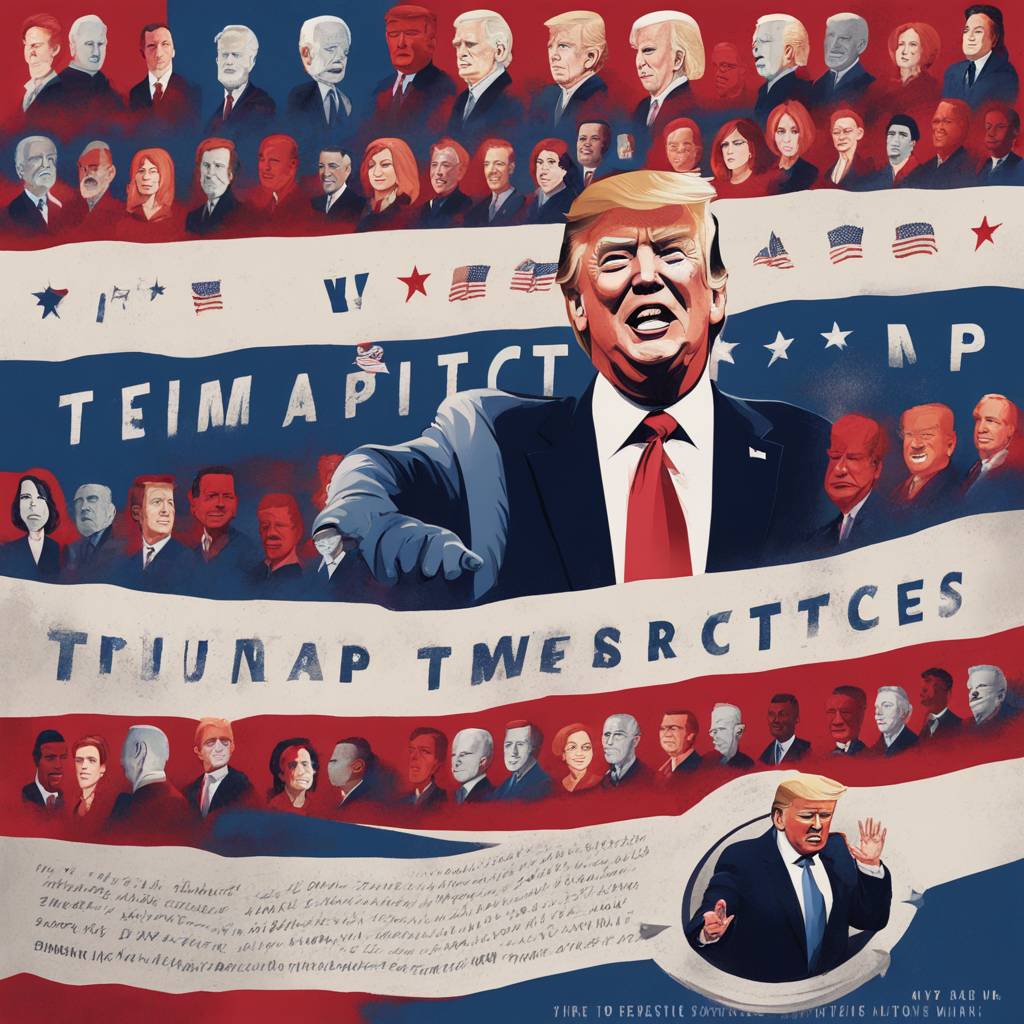Former President Donald Trump faced backlash after sharing a video on social media that features an image of President Joe Biden tied up as an apparent kidnapping victim. The 20-second video, posted to Trump’s Truth Social account, shows a truck with a decal featuring a doctored image of Biden tied up with a gag in his mouth. The video, accompanied by somber music and captioned “3/28/24 | LONG ISLAND, NEW YORK,” may have been made as Trump’s motorcade traveled to the wake of slain NYPD officer Jonathan Diller. This incident comes as Republicans are focusing on “law and order” messaging ahead of the expected rematch between Trump and Biden in November.
The video quickly sparked outrage on social media, with many condemning Trump’s actions. Some referred to Trump as “the monster” for sharing the image of Biden in a vulnerable position, questioning the legality and ethics of such behavior from a former president. Calls for consequences and accountability followed, with concerns raised about the potential threat to the president’s safety. Former federal prosecutor Joyce Vance emphasized that sharing such content is out of bounds and urged for rules to be enforced, especially when it comes to a former president like Trump.
Critics pointed out that Trump’s social media behavior is part of a broader strategy focused on inciting violence and spreading misinformation. The video featuring Biden tied up is seen as an escalation in Trump’s confrontational approach towards his political opponents. Some expressed disbelief at the lengths to which Trump was willing to go to attack Biden, highlighting the lack of decorum and respect in his actions. The incident raised questions about leadership qualities and whether Trump’s behavior is appropriate for someone seeking to lead the country.
Social media reactions to the video reflected a mix of shock, condemnation, and calls for accountability. Many compared Trump’s actions to the outrage that followed controversial images and statements made by individuals on both sides of the political spectrum. The incident underscored the deep political divide in the country and the challenges of maintaining civility in public discourse. The issue also highlighted the power and influence of social media in shaping public perception and driving political narratives.
Trump’s history of sharing controversial and disparaging content on social media, particularly targeting Biden, was brought up in the context of this incident. Some observers noted that Trump has a pattern of using inflammatory language and imagery to attack his opponents, which has been a hallmark of his political style. Critics highlighted past instances where Trump shared misleading or harmful content online, raising concerns about the impact of such behavior on public discourse and political culture.
As the 2024 election approaches, the social media exchanges between the Trump and Biden camps are intensifying, with both sides engaging in aggressive attacks and counterattacks. The use of social media as a battleground for political messaging and propaganda has become a central feature of modern political campaigns. Trump’s legal difficulties and ongoing controversies have also become a focal point in the online discourse between the two camps, adding another layer of contention to an already polarized political landscape. The incident involving the video of Biden tied up serves as a stark reminder of the challenges and risks associated with the intersection of social media and politics.








